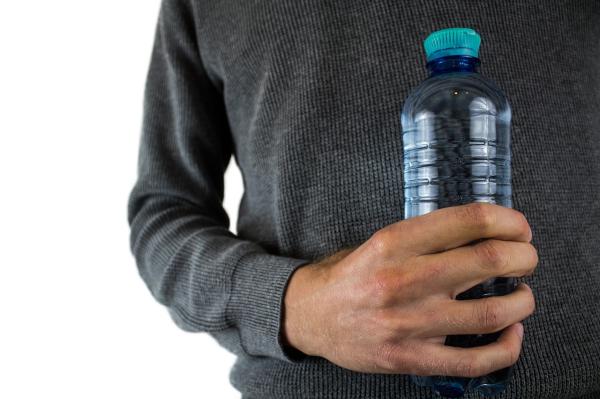Heat can be a factor that triggers anxiety states for various reasons. On the one hand, there are people who have demonstrated a marked intolerance towards the climate changes that occur in their daily lives. This produces a series of emotions, thoughts and behaviors that reflect the symptoms of anxiety. In the event of this type of event, there are various sources of information that provide advice and recommendations to mitigate the unfavorable effects of heat. However, there may be certain variables that negatively influence some actions taken in this regard. For this reason, there is great confusion about this issue that causes problems instead of solutions.
In this PsychologyFor article we will explain How to know if I have heat intolerance due to anxiety.
How heat affects people with anxiety
People who develop anxiety from the persistence of high temperatures usually present a series of manifestations that are detectable. Next, we will explain how heat affects people with anxiety:
- Increased physical discomfort : It is common for people who suffer from heat to express nervousness, physical restlessness, increased heart rate, shortness of breath, excessive sweating, among others.
- Difficulties falling asleep : Anxiety often involves increased brain activity due to an alteration in neural circuits. When this occurs, people may have difficulty establishing proper sleep hygiene.
- excessive stress In general terms, anxiety increases states of stress in the body due to bodily discomfort. Heat acts as a trigger for dysregulated responses such as impulses, attacks of anger, repetitive and incessant thoughts, among others.
Although heat can be the factor that triggers an anxiety disorder in some people. However, it is necessary to clarify that there must be causes that make the development of this clinical picture possible. For this reason, heat could be an unfavorable event for some cases and not for others.

Symptoms of heat intolerance due to anxiety
The main symptoms of anxiety heat intolerance include:
- Tachycardia.
- Excessive sweating
- Palpitations.
- Nausea and vomiting.
- Stomach ache
- Tremors.
- Concern
- Need to be on the move.
- Headache
- Chest tightness.
- Catastrophic thoughts
- Distress.
The consequences that heat causes in the development of anxiety can include various bodily, emotional and behavioral manifestations that disappear when the person stops being hot. In the event that the symptoms imply serious difficulties for the person to carry out their routine activities, it is advisable go to a specialist so that the person is evaluated and receives the corresponding medical attention.
Why do I have heat intolerance due to anxiety?
Heat intolerance due to anxiety is generated from different causes. In this section, we will develop the most important ones:
Organic factors
Firstly, as in other types of disorders, the Genetic heritage plays an important role in understanding this problem.
In general terms, the processing of information from the outside is carried out through receptors found in layers of the skin. In this way, heat produces an increase in body temperature that triggers unfavorable reactions for the person. In this sense, if there is a parent who has suffered from heat anxiety, the chances of the transmission of this mechanism increase.
Environmental factors
The presence of a uneasy environment It usually aggravates the development of heat intolerance due to anxiety. This may include family arguments, moments of disappointment or nervousness in the event of an eventuality, among other examples. On the other hand, if the person has experienced previous anxiety situations, it may be a reason that causes this condition.
What to do when you have heat intolerance due to anxiety
In order to reduce the harmful effects of heat intolerance due to anxiety, it is important to have effective strategies. In the next items, we will talk about what to do when you have heat intolerance due to anxiety:
- Move to cool places : Reducing the impact of heat is important to relieve the symptoms of anxiety. To alleviate it, electronic devices such as air conditioners, swimming pools, fans, among others, can be used. This helps reduce both physical and emotional discomfort.
- Go to psychological therapy : If the symptoms of heat anxiety are problematic for the person, going to psychological therapy to treat this condition will help understand the causes and provide tools to cope with heat anxiety and/or stress through more favorable means.
- Practice mindfulness : This technique consists of establishing a consistent breathing rhythm for a prolonged period of time. The goal of mindfulness is to reduce heart rate and avoid thoughts that cause discomfort. Here you will find some Mindfulness Exercises for beginners.
- Drink enough water : Hydration is a crucial pillar so that a person does not feel anxiety in the face of heat. Water helps lower body temperature.

This article is merely informative, at PsychologyFor we do not have the power to make a diagnosis or recommend a treatment. We invite you to go to a psychologist to treat your particular case.
If you want to read more articles similar to How to know if I have heat intolerance due to anxiety we recommend that you enter our Clinical Psychology category.
Bibliography
- Martínez Mallen, M., López Garza, DN (2011). Anxiety disorders. Neurology, Neurosurgery and Psychiatry Magazine, 44 (3), 101-107.
- Sierra, JC, Ortega, V., Zubeidat, I. (2003). Anxiety, anguish and stress: three concepts to differentiate. Mal-estar E Subjecttividade Magazine, 3 (1), 10-59.









